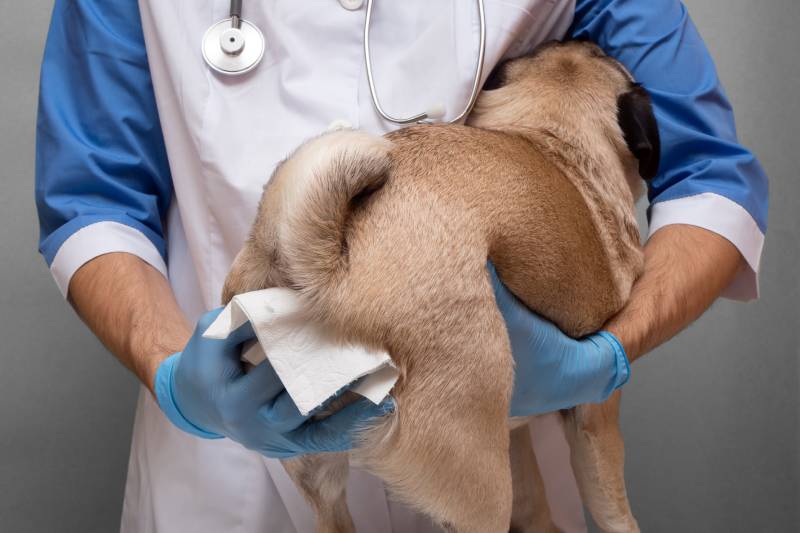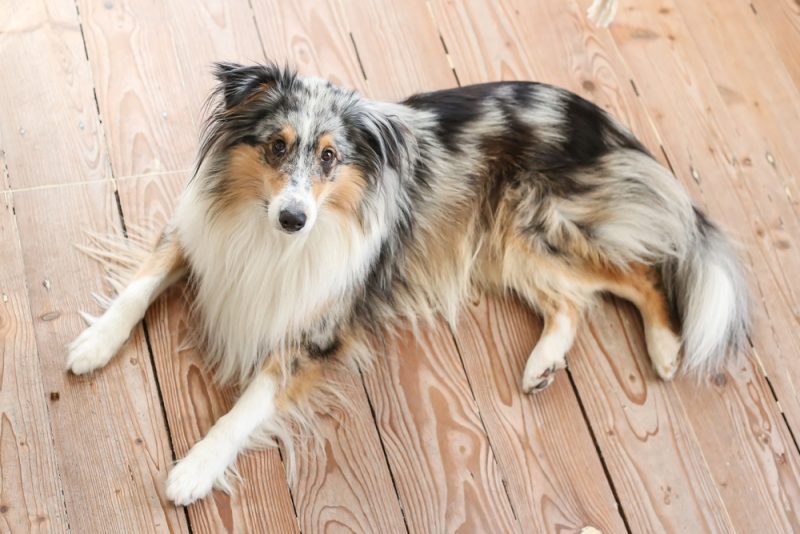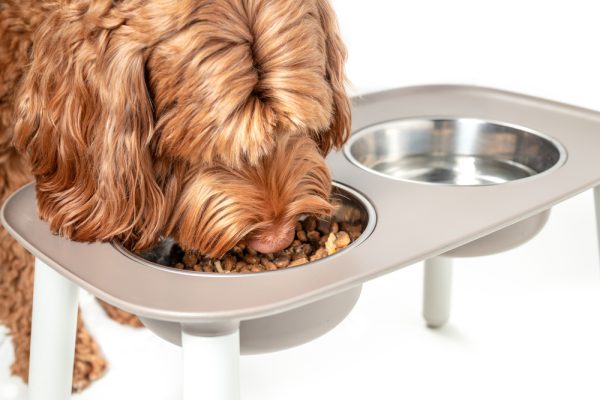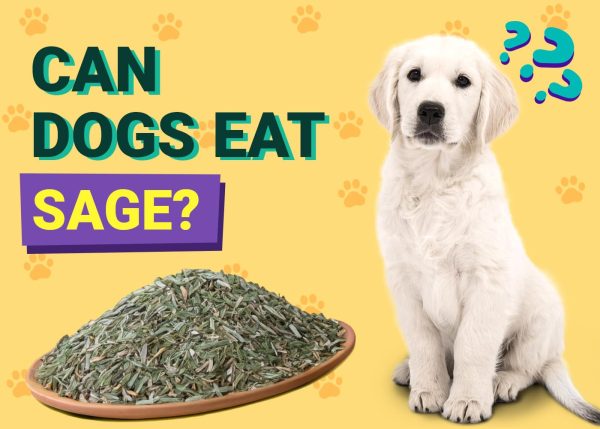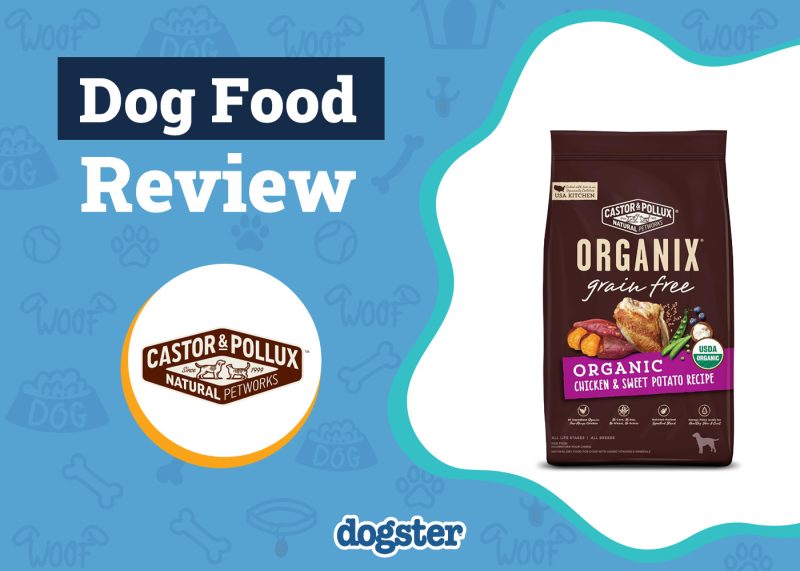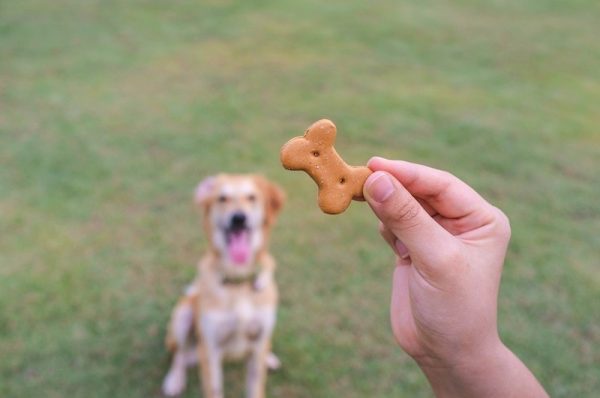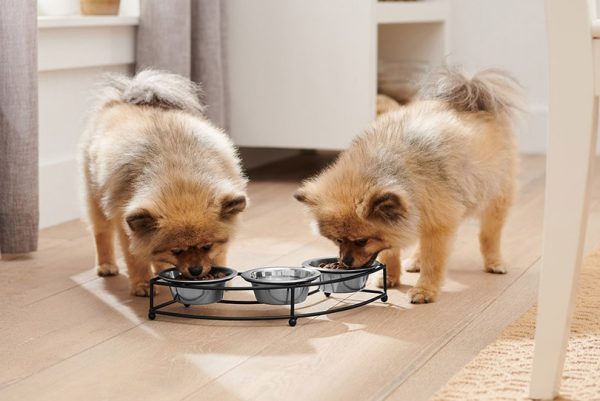In this article
View 4 More +If your dog has been scooting their butt across the carpet in your house, then you should take them to the vet to determine what’s going on. You’ll likely hear that there’s something wrong with your dog’s anal glands, but what even are anal glands? Why do dogs have them? Read on to learn everything you need to know about your dog’s anal glands.

What Are Anal Glands?
Also called the anal sacs, anal glands are pea- to grape-sized glands located just inside of a dog’s anus. They’re typically located at the 8 and 4 o’clock positions.
These glands produce an unpleasant-smelling discharge that is often considered to have a “fishy” smell. The secretions can be watery to thick in consistency and may range in color from brown to yellowish. Anal glands can become clogged, leading to swelling, infection, pain, and even rupture. They can also develop cancer.
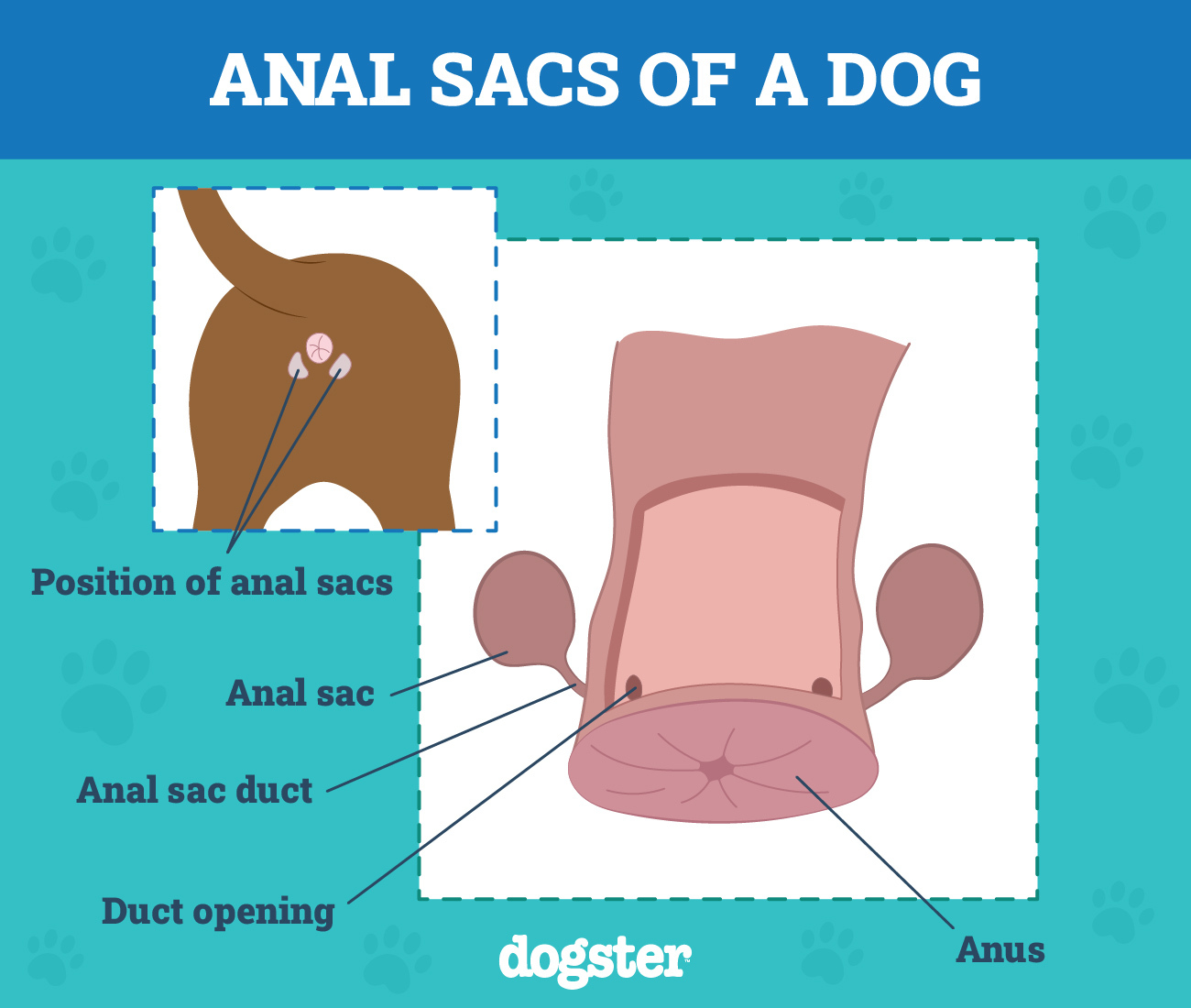
What Is the Purpose of Anal Glands?
Anal glands are essentially modified scent glands, so think of them like the glands that skunks have that produce their skunk spray. It’s believed that dogs’ anal glands may be a way for them to mark their territory, as a little bit of the fluid is released with every bowel movement. Dogs can also express their anal glands if startled or scared.
Problems With Dog Anal Glands
Most of the time anal glands function as they should by releasing the gland fluid every time a dog poops. However, if something were to go wrong with the system, it could lead to the anal glands not emptying properly, potentially leading to an impaction, infection, or even rupture. Growths and tumors can block the openings to the anal glands, causing them to become clogged. If your dog’s stool is consistently soft, they may not properly empty their anal glands when they poop. Without emptying, the secretion in the glands can thicken and slightly harden, eventually creating a blockage of the gland. The glands will continue to fill with secretions, creating a large amount of swelling that can eventually lead to a rupture of the anal gland.
Because of these, some dogs need to have their anal glands manually expressed by a vet or veterinary staff on a regular basis to keep the fluid moving through as it should.
Dogs may also develop cancer in the anal glands. When this happens, surgery is typically required to remove the cancerous growth, along with the affected anal gland itself. In some cases, this surgery may result in difficulty controlling bowel movements or cause complete fecal incontinence.
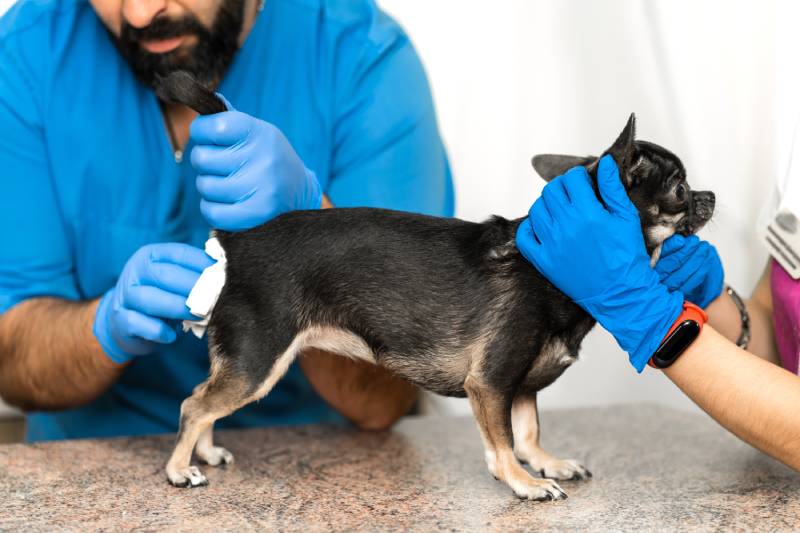
How Do You Know if Your Dog Is Having Problems With Their Anal Glands?
For most dogs, you’ll never even know their anal glands exist. For others, they can be a constant bother. Regardless of the cause of irritation, most dogs will scoot their booty across the floor or ground in an effort to relieve any discomfort they may have from their anal glands. They are also likely to spend a lot of time licking their bottom. Redness and swelling near the anus can often indicate anal gland issues. They may strain to go poop as the full anal glands can block the passage of feces. You may also notice crying or whimpering as a dog postures. There may be a smelly discharge from your dog’s anus and they may withdraw themselves, not want to eat or play.

Frequently Asked Questions (FAQ)
How Can I Express My Dog’s Anal Glands?
Although the process of emptying anal glands isn’t typically difficult, there is a risk of injury to your dog if not done properly. In some cases, you may even unintentionally rupture an anal gland. It’s best to have a veterinarian or their staff show you how to properly and safely express your dog’s anal glands.
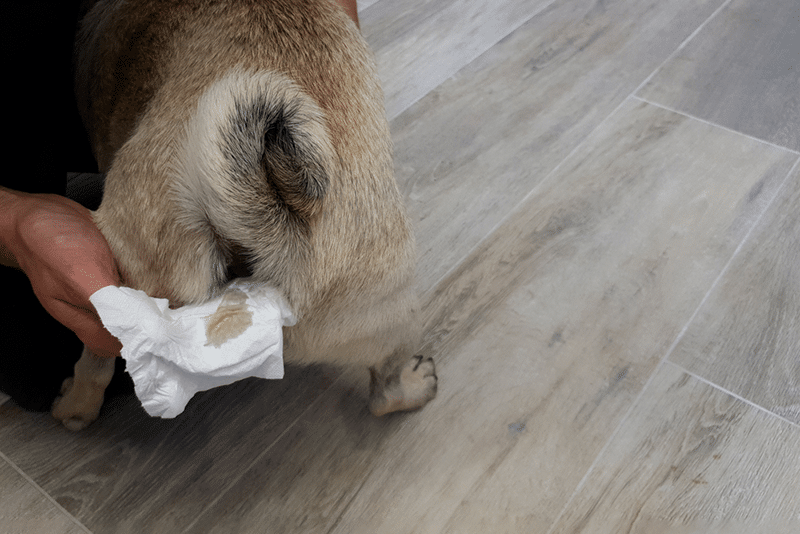
How Can I Prevent Anal Gland Issues?
The primary risk factors for anal gland issues are being overweight, soft stools, low fiber content in the diet, and genetics. By having your dog stay active and at a healthy weight, you’ll be helping to prevent anal gland problems. If your dog experiences chronic anal gland problems, it’s best to talk to a vet about adding fiber to your dog’s diet.
If you need to speak with a vet but can't get to one, head over to PangoVet. It's our online service where you can talk to a vet online and get the personalized advice you need for your pet — all at an affordable price!


Conclusion
Anal glands may be an unpleasant part of dog ownership, but it’s important for you to ensure your dog’s anal glands stay healthy and empty properly. If your dog is having issues, it’s best to consult with your vet about options for reducing future anal gland problems. In severe and chronic anal gland issues, it may be necessary to surgically remove the glands permanently.
See also:
- How to Get Rid of Dog Anal Gland Smell: 5 Vet Approved Tricks
- How to Remove Hard Poop From Dog Anus? Our Vet Explains the 4 Tips to Help
Featured Image Credit: Yekatseryna Netuk_Shutterstock
